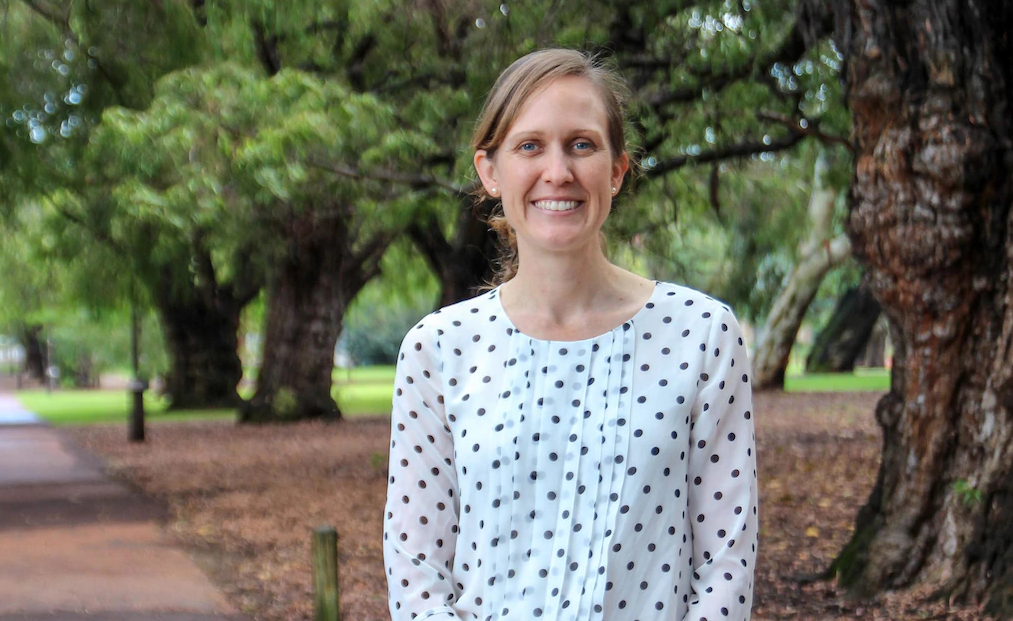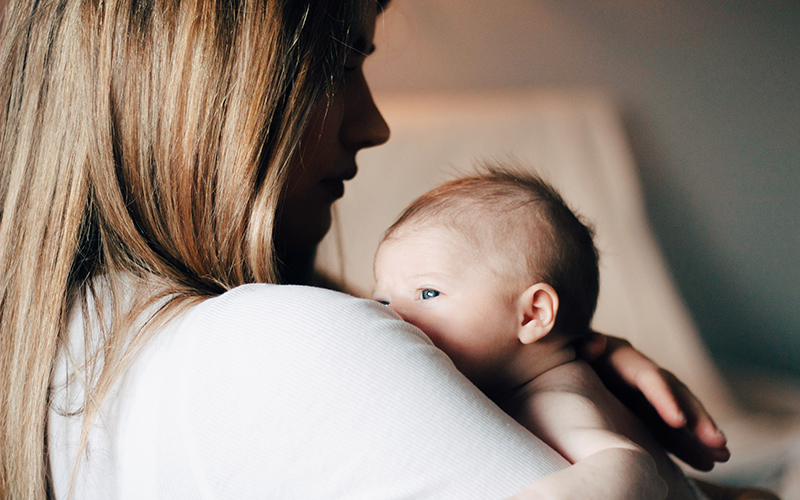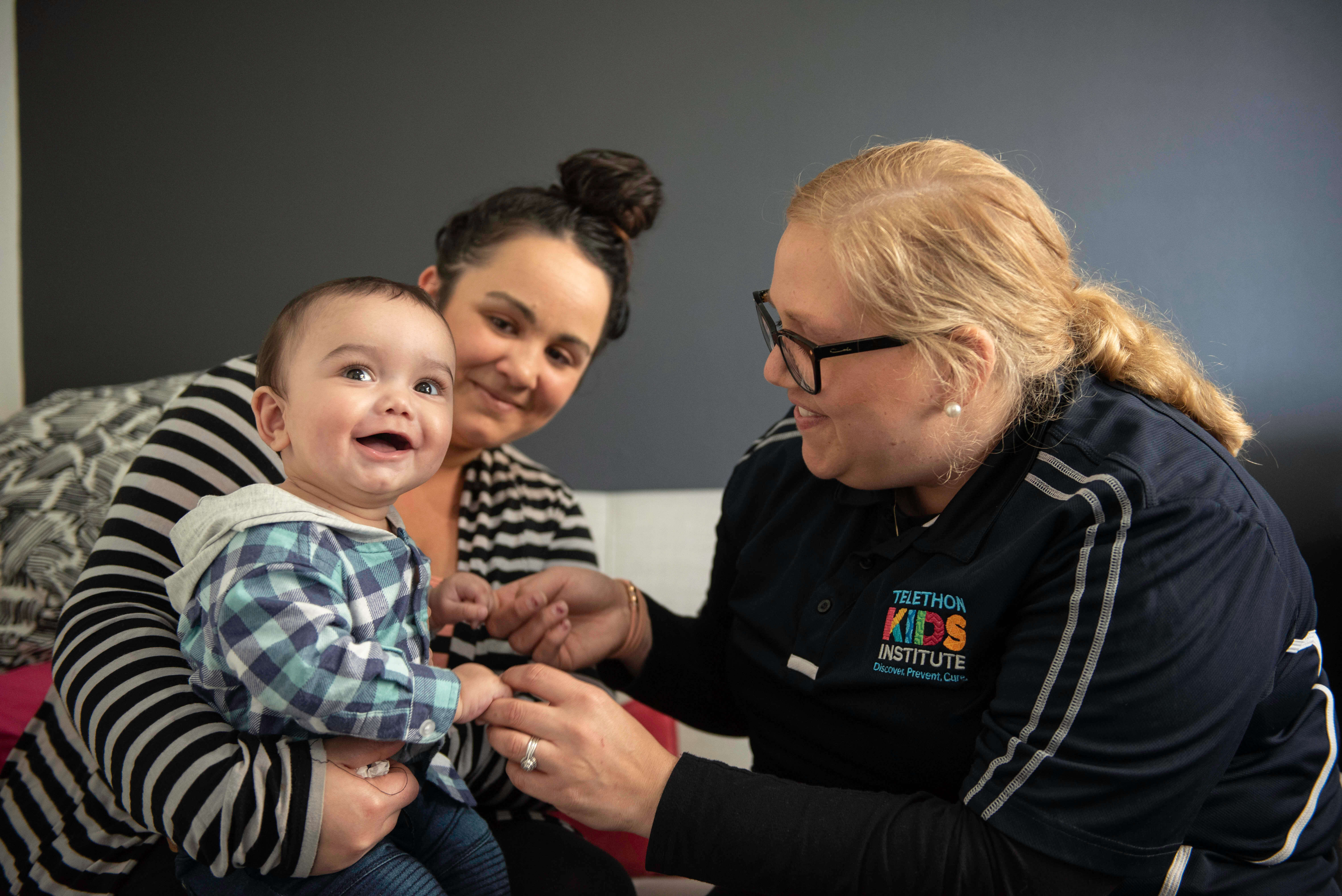Search

News & Events
World-first trial to seek child-specific treatments for dangerous bloodstream infectionsThe Kids Research Institute Australia, Perth Children’s Hospital (PCH) and the Peter Doherty Institute for Infection and Immunity (Doherty Institute) will spearhead the paediatric arm of a world-first global platform trial designed to uncover treatments for Staphylococcus aureus bloodstream infection.

News & Events
Call for national newborn screening for little-known CMV virusWestern Australian researchers advocate for a national newborn screening program for congenital CMV to prevent hearing loss and related disabilities in infants.

News & Events
Shot in the arm for Strep A vaccine bidThe Leducq Foundation has bolstered an Australian-led bid to develop a Strep A vaccine, committing USD4.3 million to fund critical scientific work.

News & Events
Worried about your child getting coronavirus? Here’s what you need to knowComparatively few children have tested positive for coronavirus (COVID-19). Here’s what we know so far about how children are affected.

News & Events
Wesfarmers tops 2019 GivingLarge ReportThe major funder of the Wesfarmers Centre of Vaccines and Infectious Diseases based at The Kids Research Institute Australia has been recognised as Australia’s most generous giver.
Research
STopping Acute Rheumatic Fever Infections to Strengthen Health (STARFISH)STopping Acute Rheumatic Fever Infections to Strengthen Health (STARFISH) brings together a diverse and multidisciplinary research team to investigate the most effective environmental health initiatives (EHIs) aimed at reducing Strep A infections and prevent Acute Rheumatic Fever (ARF).
Research
Spatio-temporal dynamics of three diseases caused by Aedes-borne arboviruses in MexicoThe intensity of transmission of Aedes-borne viruses is heterogeneous, and multiple factors can contribute to variation at small spatial scales. Illuminating drivers of heterogeneity in prevalence over time and space would provide information for public health authorities. The objective of this study is to detect the spatiotemporal clusters and determine the risk factors of three major Aedes-borne diseases, Chikungunya virus, Dengue virus, and Zika virus clusters in Mexico.
Research
A malaria seasonality dataset for sub-Saharan AfricaMalaria imposes a significant global health burden and remains a major cause of child mortality in sub-Saharan Africa. In many countries, malaria transmission varies seasonally. The use of seasonally-deployed interventions is expanding, and the effectiveness of these control measures hinges on quantitative and geographically-specific characterisations of malaria seasonality.
Research
Immunological mechanisms of vaccine-induced protection against COVID-19 in humansMost COVID-19 vaccines are designed to elicit immune responses, ideally neutralizing antibodies (NAbs), against the SARS-CoV-2 spike protein. Several vaccines, including mRNA, adenoviral-vectored, protein subunit and whole-cell inactivated virus vaccines, have now reported efficacy in phase III trials and have received emergency approval in many countries.
Research
Coronavax: preparing community and government for COVID-19 vaccination: a research protocol for a mixed methods social research projectAhead of the implementation of a COVID-19 vaccination programme, the interdisciplinary Coronavax research team developed a multicomponent mixed methods project to support successful roll-out of the COVID-19 vaccine in Western Australia. This project seeks to analyse community attitudes about COVID-19 vaccination, vaccine access and information needs. We also study how government incorporates research findings into the vaccination programme.
